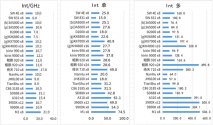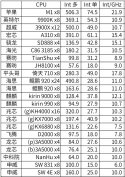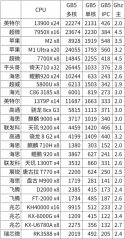The issue is compatibility. Phytium and Huawei may have licenses to v8 ARM ISA, but they will not get license to v9, v10… in a sanctioned scenario. Pyhtium and Huawei are free to make as many v8-based ARM CPUs as they like, but they will not be able to run softwares that are designed to run on ARM cores with ISA v9, v10… Huawei phones with v8 ISA SOC will have no market inside and outside of China because they can’t run the latest versions of popular apps.
Sanctioned CPU/SOC makers may even have trouble getting support from open source softwares because app maintainers are unlikely to be interested at keeping a branch just for v8 ARM ISA.
Compatibility issue is the major reason Chinese companies should switch to RISC-V. Due to its open nature, no one can prevent Chinese companies from making CPU/SOC with the latest RISC-V instruction set. Chinese companies don’t have to worry about app compatibilities or maintaining open source software themselves.




